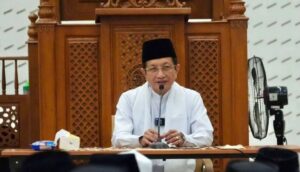Indonesia needs special education system

Badung, The Gulf Observer: Indonesia needs a special education system for people who cannot complete schooling normally, Secretary General of the Education, Culture, Research, and Education Ministry Suharti said during the Inclusive Lifelong Learning Conference (ILLC) here on Tuesday.
According to the ministry’s data, people who do not complete their education up to the middle school level generally work in the informal sector, she informed.
The higher a person’s level of education, the more likely it is that he/she will be employed in a formal job and earn a higher salary.
Since 2020, the proportion of the population seeking informal education has increased. This can happen in all countries with a low-skill workforce market, she added.
The country needs to provide support to this population to ensure that their productivity can be maintained or even increased, she affirmed.
Moreover, she said that the support can increase the population’s income.
Thus far, the government has provided informal education equalization programs, which comprise Package A (equivalent to primary school), Package B (equivalent to middle school), and Package C (equivalent to high school).
In addition to these programs, the government has initiated skills training institutions or training courses for all groups, which have increased from time to time.
The government has also provided subsidies for 20 million students from primary school to high school level and one million university students, however, there are still many who cannot their complete education due to various reasons, she noted.
Hence, in the future, the government will make an effort to ensure that the existing education system aligns with the demands of the industry.
It will also strive to improve the graduate support system at educational institutions as well as quality assurance and introduce differing perspectives, including from various stakeholders, to gain a comprehensive perspective on informal education graduates.


